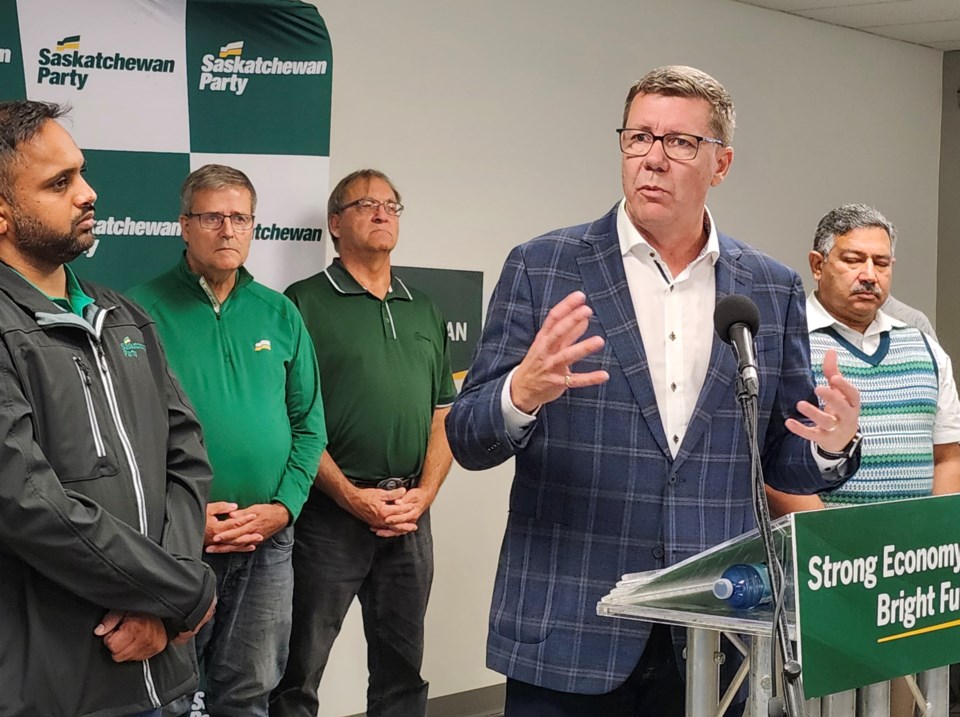SASKATOON — Saskatchewan Party Leader Scott Moe said that though the province worked closely with the federal government on immigration issues, it has its way of creating policy that focuses on economic immigration.
The federal government handles immigration policies regarding asylum seekers, refugees, and student permits. The province has its policy, the Saskatchewan Immigrant Nominee Program, with entrepreneurs, farm owners and operators, international skilled workers, and workers with Saskatchewan work experience as categories.
“We feel strongly that economic immigration should be a part of any successful immigration policy, a significant plank or platform in any successful immigration policy,” said Moe in a previous interview during a campaign stop in Saskatoon.
“It is not only a good policy for the individual that may be immigrating and making a home in Saskatchewan, but we would hope that it's their family, that individual's family, that is moving to Saskatchewan and making their home in a Saskatchewan community.”
He added that individuals availing of the SINP would benefit the immigrant’s family and the place where they chose to reside in the province with their skills and work experience, strengthening that community.
“So, it's a beneficial policy from an immigration perspective to be focused on economic immigration and all of the other conversations that we have with the federal government and their parameters to focus on that,” said Moe.
He added that immigration policies continue to be a topic of conversation with other provinces like Quebec, which currently has challenges accommodating asylum seekers.
“It would be best if you had a sound immigration policy that is focused on working towards positive economic immigration that is good for everyone involved,” Moe said.
According to the 2021 Canadian Census, Saskatchewan’s population is 1,132,505, with 12.5 per cent, or 137,615, С����Ƶ immigrants - a two per cent increase from nine years ago. Filipinos have the highest number of immigrants at 35,955.



